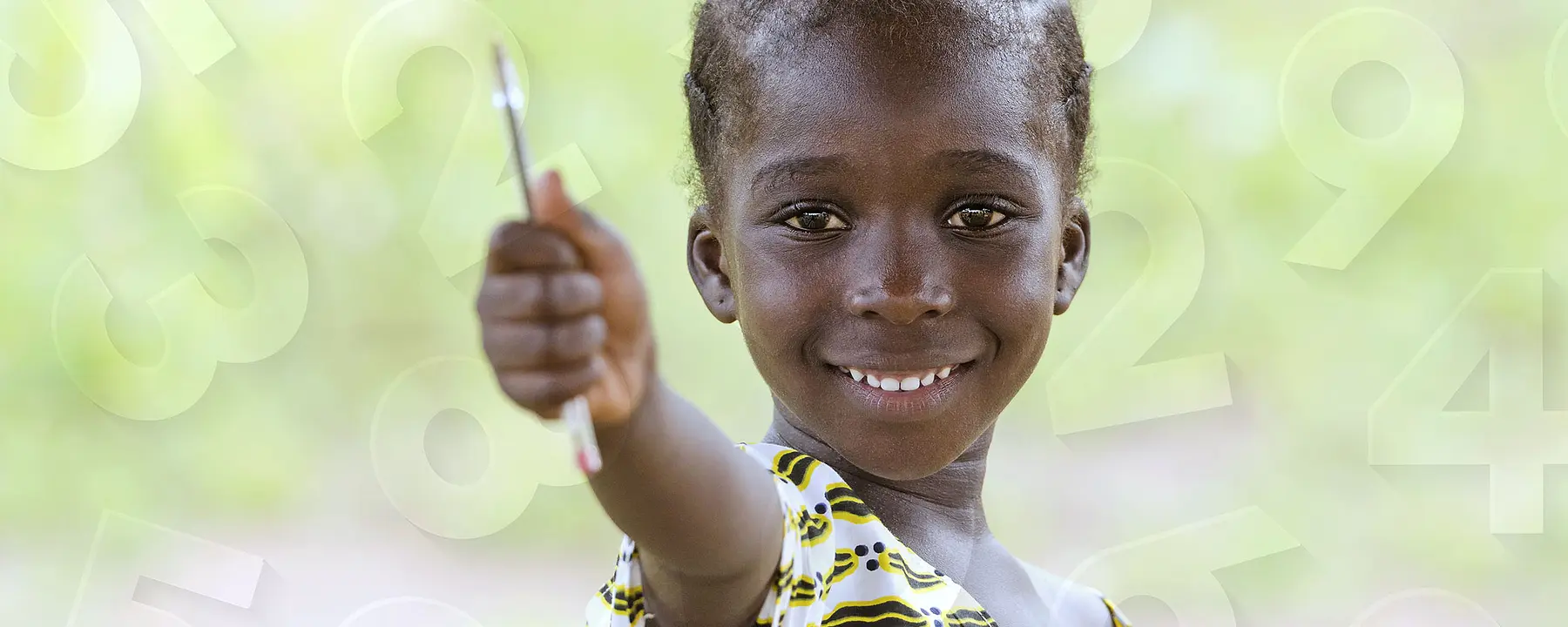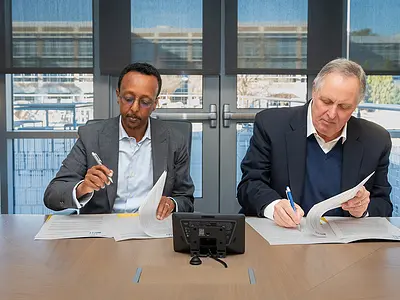A data-driven revolution in international development is driving smarter programs and better outcomes
Rapid advancements in technology and open data have made more information available now than ever before. For policymakers in developing countries, information gleaned from these data can provide actionable insights for improving public health, education, governance, youth employment, food security, and more.
Data can help explain what has happened, what is happening, and what will happen, and can give policy makers sound information with which to make decisions and allocate resources. For example, in early grade education, data collected through classroom assessments can help education leaders better understand what a child is learning or not learning, and why. These insights are used to improve curricula, teaching techniques, and classroom materials based on evidence of what is likely to be more effective.
The revolution in data for development also makes it easier to track an intervention's progress and measure its effectiveness. This is important at both the micro- and macro-levels—from fighting the outbreak of a disease in a small village to measuring the progress of the full slate of Sustainable Development Goals.
While the potential of the data revolution is vast, it will take hard work and the right approach for international development practitioners to harness the value in the data and put it to work for policymakers and people around the world.
Helping Clients Harness the Data Revolution through Strategic Advising and Technical Tools
As a leader in international development data science, survey research, mobile technology, and sensor technology, we are uniquely able to help clients harness the data revolution. We help achieve better program outcomes through improved needs assessment, monitoring, evaluation, program implementation, and policy analysis and consulting.
We provide strategic advising and technical tools, including
- Applications development, rapid prototyping, and pilot projects
- Strategic advice on collecting and analyzing “little data” and “big data”
- Understanding how to use data for better policy making and decision making
- Predictive analytics to better understand sectoral challenges
- Integration of disparate data sets to better understand unit performance
- Data visualization
- Improving legacy systems.
Breakthrough Mobile Applications and Platforms for Education and Health
RTI has developed several mobile tools that provide users in low- and middle-income countries with data-driven insights. For instance, we developed Tangerine®, the world’s leading open source mobile software for capturing, analyzing and acting on student responses in oral early grade reading and mathematics skills assessments. Since we released it to the development community, Tangerine has been used to complete more than one million student assessments by more than 30 organizations in more than 50 countries and 100 languages.
We also developed Coconut and Coconut Surveillance technologies that enable the efficient development of mobile decision support applications by storing data locally on any device and synchronizing data with a remote server when a network connection is available. Coconut applications are being used to manage malaria health records and enable passive and active malaria case detection, epidemic detection, and high-resolution targeting of malaria elimination interventions.
Driving Innovation in R&D, Analytics, and Data Collection to Provide New Insights
Beyond these efforts, we also actively pursue research and development in real-time social media sentiment analysis, using unmanned aerial vehicles (UAVs or drones) for helping to control mosquito populations that spread Zika and other diseases, natural language processing, and automated interactive data collection. Our data and geospatial scientists apply advanced analytics and visualization tools to provide new insights into development challenges.
As the data revolution continues to unfold, we will continue to bring to bear the breadth of our expertise to help clients better understand and harness the potential for measurably improving lives in the developing world. Our development experts also conduct research to identify new ways of applying improved data collection and resulting insights across our development programming—and ultimately leading to better outcomes.
Related Projects
Gooseberry + Strawberry for Mobile Transactions
Read More about Gooseberry + Strawberry for Mobile Transactions








